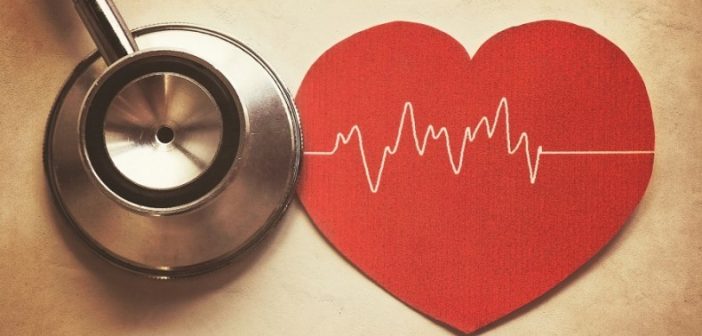Testosterone is a hormone produced by the body. For men, the testicles produce testosterone; for women, testosterone is produced in the ovary and the adrenal gland. This hormone is responsible for the development of male sexual characteristics for men. Testosterone is also important for maintaining a man’s muscle mass, bone growth, sexual function, red blood cell levels, and sense of well-being. As one ages, the production of testosterone also decreases. However, this doesn’t necessarily lead to erectile dysfunction (ED). But Temecula testosterone clinic experts advise patients who suffer from ED to undergo testosterone replacement therapy.
What is hypogonadism and is it the same as Low-T?
In men, hypogonadism may refer to a decrease in either sperm production, testosterone production, or both. Decreased sperm production requires careful and a thorough evaluation by specially-trained specialists and medical professionals at Temecula testosterone clinic can do just that. They can also address the testosterone aspect of hypogonadism.
What causes low testosterone?
As a man gets older, the amount of testosterone his body produces naturally decreases. This decline begins after the age of 30 and continues throughout life. Low testosterone or Low-T, according to experts from Temecula testosterone clinic, can be caused by the following:
- Chemotherapy or radiation treatment for cancer
- Injury, infection, or loss of the testicles
- Hemochromatosis (which means there’s too much iron in the body)
- Genetic abnormalities like Klinefelter’s Syndrome (having an extra X chromosome)
- Inflammatory diseases such as sarcoidosis
- Pituitary gland or hypothalamus dysfunction
- Medications and corticosteroid drugs
- Stress
- Chronic illness
- Chronic kidney failure
- Cirrhosis of the liver
- Alcoholism
- Obesity
What are the symptoms of low testosterone?
Low testosterone count can affect a man’s sex drive and even lead to erectile dysfunction. Low testosterone can also make a man feel depressed or a decreased sense of well-being, and difficulty concentrating.
What happens to the body when testosterone decreases?
Low testosterone in the body can result in the following physical changes:
- A decrease in body hair
- Changes in cholesterol and lipid levels
- Changes in cholesterol levels
- Decreased muscle mass and increased body fat
- Osteoporosis
How will you know if your testosterone levels are low?
Experts at Craft Mens Clinic will tell you that the only accurate way to detect low testosterone is to get your doctor to measure the amount of testosterone in your blood. Since testosterone levels are not consistent and fluctuate throughout the day, you’ll be required to take several measurements to accurately detect a deficiency. If possible, doctors prefer to test levels in the morning, when testosterone levels are at the highest.
It’s important to note that testosterone should only be used by men who display clinical signs and symptoms, as well as medically documented low testosterone levels.
What is considered ‘normal’ testosterone level?
Testosterone levels among healthy men that are considered ‘normal’ are between 350 ng/dL and 1000 ng/dL. Normal physiology lets the brain and the testes to work together to keep testosterone within this range. The brain produces ‘signal’ hormones that stimulate testosterone production. These signals are released regularly, which results in the stimulation of testosterone production. When testosterone levels are at the acceptable level, the production of these ‘signal’ hormones slows down, which eventually allows the decrease of testosterone levels.
How do you treat low testosterone?
There are a variety of ways to treat testosterone deficiency and they are as follows:
- Intramuscular injections
- Long-acting subcutaneous pellet
- Mucoadhesive material applied above the teeth 2 times a day
- Testosterone gel applied inside the nose or to the skin
- Testosterone stick (use and apply like an underarm deodorant)
Each of the options mentioned above provides enough levels of hormone replacement. But they also have different advantages and disadvantages. Consult your doctor and see which approach is the right one for you.
What are the benefits of testosterone replacement therapy?
Medical professionals at Temecula testosterone clinic explain that the benefits of testosterone replacement therapy (TRT) may vary depending on one’s pre-therapy symptoms and many other factors. But they can include the following:
- Improved sex drive
- Increased energy
- Increased muscle mass and strength
- Improve verbal memory and visuospatial cognitive function
- Higher motivation
- Improvement in erectile function
- Thicker skin
- Decreased body fat
- Decreased irritability and depression
Who isn’t allowed to take testosterone replacement therapy?
Although TRT treatments can help men suffering from Low-T, not everyone is qualified to undergo such treatment. For example, men who have prostate or breast cancer are not allowed to undergo TRT treatment. Men who have untreated severe sleep apnea, severe urinary tract problems, or uncontrolled heart failure should not take TRT treatment as well. All men who plan to get TRT treatment should undergo a comprehensive prostate cancer screening first before starting this therapy.
What are the side effects of undergoing testosterone replacement therapy?
Generally speaking, testosterone replacement therapy is safe. However, it is associated with some side effects, including:
- Acne or oily skin
- Breast enlargement
- Decreased testicular size
- Mild fluid retention
- Increased risk of developing prostate abnormalities
- Stimulation of prostate tissue
- Increased risk of blood clots
- Increased feelings of aggression and mood swings
- Increased risk of stroke and heart attack
- Worsening of sleep apnea
Other laboratory side effects that can happen with hormone replacement include:
- Increase in PSA
- Decrease in sperm count, resulting in infertility
- Changes in cholesterol and lipid levels
- Increase in red blood cell count
If you’re taking hormone replacement therapy (TRT), you’ll need to have regular follow-up appointments with your doctor.
Just like any other form of medication, directions for applying or administering testosterone should be done exactly the way your doctor instructed you to. If you are unsure or have any questions concerning testosterone replacement therapy, ask your doctor.
Conclusion
If you have a healthy, normal testosterone count, you probably don’t need to go through testosterone replacement therapy. It will not have any effect on your body or your well-being. But if you feel that you exhibit the symptoms consistent with low testosterone, consult your doctor so you can both figure out how to approach the problem in the best way possible. Testosterone replacement therapy can help, and if you’re interested in it, make sure you do it only with those who are qualified to administer such treatment. Best of luck!




